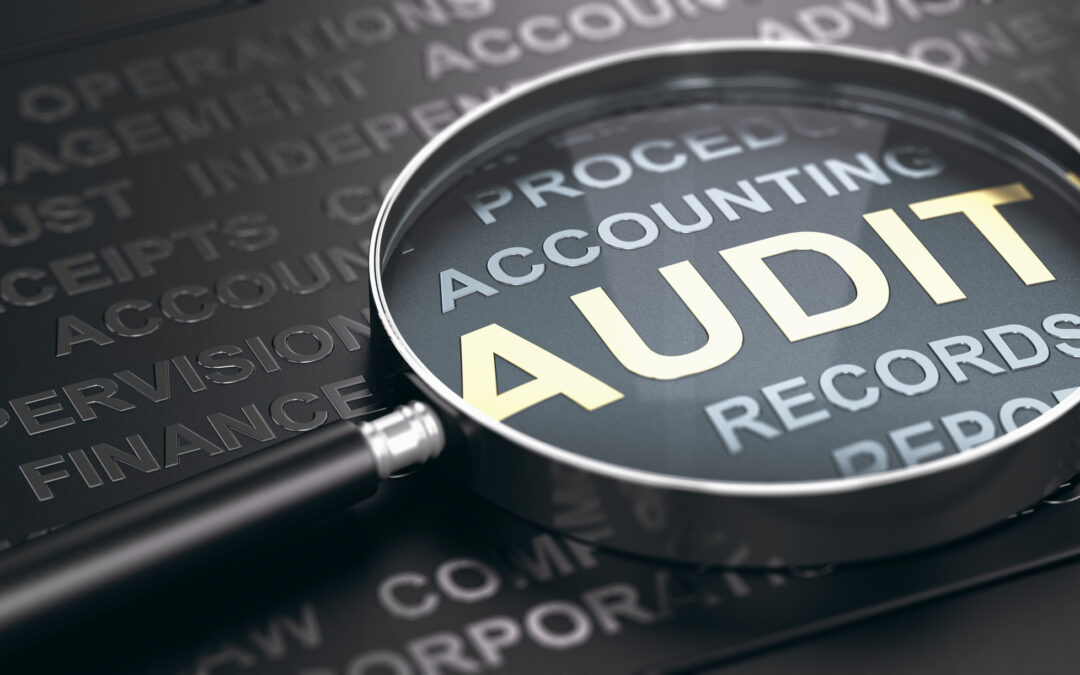So, you’ve been informed your business is going to be audited. While it may spark initial panic and send you into a frenzy, it doesn’t have to be a dreaded event. These Tips For A Successful Financial Audit will get you moving in the right direction.
With a little planning and organization, you can help to facilitate a successful audit for your business. You can minimize audit adjustments and not be surprised, lower your audit fees that you may incur in the future, and even get more value out of the audit process.
We’ve come up with a handful of tips to not only survive an audit, but to come out successfully ahead!
1. Be Well Prepared In Advance
Your auditor can provide a list called the Prepared by Client (PBC) list. You should work to obtain at least a month before they begin field work. Simply request this checklist, which is a complete list of all documents, schedules, and spreadsheets the auditor will need to review before beginning the assignment.
You never want to be surprised by something they may ask. Don’t assume you understand what you will need to provide. And if you do have questions, don’t be shy. Ask the auditor to clarify anything you are unsure about. Don’t be afraid to ask for help, it can end up saving a lot of wasted time on both sides!
2. Make Clear Assignments of Necessary Work
Anything that needs to involve people who can best answer any questions on specific reconciliations, supporting schedules, etc. should be told early that they will be responsible for that group of accounts. When you assign items to employees, give them enough time to review and rectify any errors they may identify.
Many of the supporting items needed should have been completed as part of your year-end close process. The last thing you need is for work to be overlooked. Or worse, having multiple people doing the same thing with different results.
3. Make Sure Data Is Organized Well
It’s hugely beneficial to organize your files digitally. Make sure everyone is clear on a consistent naming convention so files are all easy to locate. It’s important that the data is secure and available for analysis during subsequent years.
In this vein, it’s crucial to keep track of all of your company’s financial information in a clear and organized manner all year long. You should be updating and reconciling your bookkeeping and accounting information monthly. If your company’s financial data has errors or missing details, it will always be a challenge to find what you’re looking for if information isn’t kept up-to-date. Not organizing your business financials on an ongoing basis will only force you and your team to spend a considerable amount of time during an audit. This leaves a lot of room for error.
By using modern finance tools like QuickBooks, Gusto or other software solutions, along with back-up storage options like Google Drive or Dropbox, it will go a long way to help the audit process run smoothly.
4. Create A Shared Calendar With Target Dates
Set up your business for success by creating a shared calendar. This is a great way to capture due dates for all of the items needed. It will also help to create accountability for everyone that things are assigned to.
Also, ensure that your timetable allocates time towards the planning phase, risk assessment, audit procedures, evaluating the financial records and statements, and reporting.
5. Communication Is Key
Everyone in the business needs to know and understand that audit requests are priority. Be considerate with time and commitments from your team, as closing the year and a subsequent audit will require a lot of time from the accounting and finance teams. You’ll need to address any questions or concerns auditors have in a prompt and transparent manner.
Set everyone up for success and help manage expectations by working with upper management and other departments to keep other commitments to a minimum during this time.
6. Conduct A Mock Audit
If you have never been through the audit process before and are concerned, you may want to conduct a mock audit. This will help your team get familiar with the process. It will also identify any potential weaknesses or gaps that you can address.
It will also allow you to identify potential risks in your accounting process or any broader financial operations. By considering the likelihood of errors or compliance breaches, you can develop strategies to mitigate the risks and be prepared to discuss them with auditors. This will ensure employees are well-prepared to answer questions and provide necessary documentation.
7. Attend to Auditors on Audit Day
While the auditors will already have requested all of the required information early on, they may still need explanations and supporting documents. Therefore, make sure your key finance and accounting people are available. Staff shouldn’t be given time off during the crucial audit period. Any unimportant meetings with these employees should be postponed and rescheduled.
This is also the time when you will want to maintain meticulous documentation of findings, recommendations and any issues that may have been found. This will help you to develop action plans to address these weaknesses. You can then better track progress in implementing improvements during the audit process and beyond.
8. Set Up A Debrief Once The Audit Is Complete
It’s a great idea to set up a post-mortem once the audit is complete. Not only your team, but also with the auditors. See what needs to be better anticipated or adjusted for a future audit. This gives you a chance to also see if there are any open items and to see if the auditor is willing to attend a meeting with the board of directors and upper management after the audit is complete.
While financial audits may be stressful, it’s important to remember that they establish you as a reliable company in the eyes of external entities such as banks, government agencies and shareholders. Thus, taking these necessary steps before, during and after the audit is important to ensure that the process goes smoothly and is accurate. Contact us if you have any questions!

